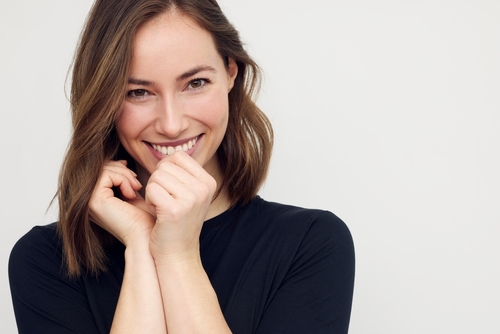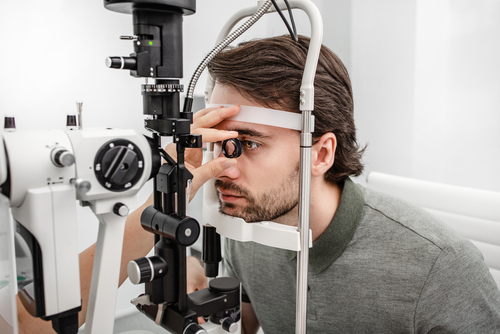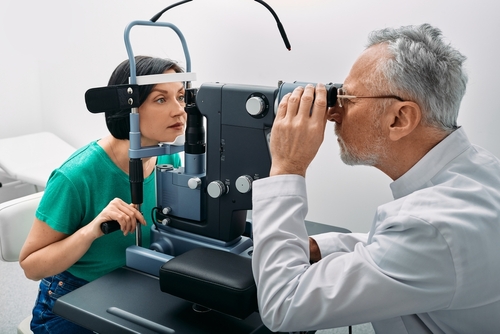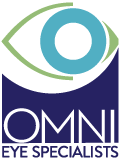Are Eye Exams Necessary for Healthy Eyes?
July 24, 2023
When was the last time you had an eye exam? If you can't remember, it may have been too long since you've had one.
Regular eye exams are essential even if you think you have healthy eyes. Having them more frequently becomes more important as you get older, as age-related eye conditions are to be expected.
No matter how old you may be, if you need glasses or contact lenses to correct refractive errors, you should have your eyes examined annually to keep your prescription up-to-date.
Even if you have good vision and don't need glasses, you should see your eye doctor for an eye exam every year or two. After you turn 40, your risk of developing age-related eye conditions increases.
Because of this, you will need eye exams more frequently. You may also need eye exams more frequently if you have a family history of certain eye conditions. Keep reading to find out why eye exams are necessary for healthy eyes!
Your Eye Health
 When your eyes aren't healthy, it can affect your vision and ability to see clearly. Your eyes are sensitive and can be affected by many things, including your environment, diet, and age.
When your eyes aren't healthy, it can affect your vision and ability to see clearly. Your eyes are sensitive and can be affected by many things, including your environment, diet, and age.
Even if your eyes seem healthy, you may have an undiagnosed eye condition with no symptoms. Many age-related eye conditions, like glaucoma, don't show signs during the early stages.
You'll only notice something is wrong when the eye condition begins affecting your vision. At that point, any vision loss you experience is permanent and irreversible.
But there is a way to prevent vision loss from eye conditions: early detection and treatment. However, since there aren't any discernible symptoms, the only way to detect these conditions as early as possible is by having an eye exam.
Your eye doctor at Omni Eye Specialists can detect any early signs of eye conditions by having you undergo standard tests during a routine eye exam. Detecting any early signs of eye conditions is why examining your eyes is vital, even if you aren't experiencing eye pain or visual problems.
It's also why eye exams become more important as you get older because so many eye conditions are age-related.
Eye Health and Physical Health
 Eye exams are a crucial part of keeping your eyes healthy, but you can also use them to detect other non-eye-related diseases and conditions occasionally. Keeping your eyes healthy is closely tied to the health of your body.
Eye exams are a crucial part of keeping your eyes healthy, but you can also use them to detect other non-eye-related diseases and conditions occasionally. Keeping your eyes healthy is closely tied to the health of your body.
Your eyes may show signs of certain illnesses or medical conditions before the rest of your body. This is especially true regarding neurological diseases like multiple sclerosis (MS) and brain cancer.
But an eye exam can also find early signs of diabetes, heart disease, and thyroid diseases, to name a few. Undergoing eye exams regularly not only helps you keep your eyes healthy, but it also helps you keep your body healthy as well.
Preventative Eye Care

Routine eye exams are necessary to diagnose eye conditions as early as possible, leading to monitoring and early treatment. But they're also an excellent way to learn how to keep your eyes healthy.
Preventative care is essential for keeping healthy; your eyes are no exception. Just as you see your primary care physician for an annual physical or your dentist for a cleaning once or twice a year, don't forget about your eyes.
Your ophthalmologist will ensure you're healthy, but they'll also advise you on how to keep your eyes healthy. Maintaining healthy eyes requires several factors, including proper nutrition, sun protection, and screen use.
Your eye doctor can tell you specifics about if you should take nutritional supplements, ways to keep your eyes hydrated, and other recommendations. They can also assess your risk for certain eye conditions by examining your medical history and your family's. With this information, they can better understand how often you should come in for eye exams to keep your eyes healthy.
Comprehensive Eye Exams
You may be curious about what a comprehensive eye exam entails, especially if it's been a long time since you've been to an eye doctor. Although it may differ depending on the eye doctor you see, some standard tests are given during a comprehensive eye exam to give you a better idea of what to expect.
You'll need to disclose your medical history at the beginning of most eye exams. This is particularly necessary, especially if you're a new patient.

Your eye doctor will then begin testing your visual acuity to determine if you have any refractive errors. If you have refractive errors, they will use a method called refraction to determine your prescription.
Next, your ophthalmologist will measure your eye pressure (intraocular pressure). Having high intraocular pressure is often one of the first signs of glaucoma, so measuring this will help get a baseline of where your eye pressure is at.
Your eye doctor will also likely dilate your pupils so they can see into your eye to check for signs of damage to your retina. They may also use an imaging device to magnify the inside of your eye to more closely examine your retina and other parts of your eye, such as your optic nerve.
If you're in good health, there's a good chance your eye doctor won't find anything of concern when they examine your eyes. But if they find something, the next step is recommending treatment as soon as possible. The earlier you can receive a diagnosis for eye conditions, the earlier you'll be able to start treatment, making it more effective.
Ready to make your eyes a priority? Take the first step by requesting an appointment today at Omni Eye Specialists in Baltimore, MD!



